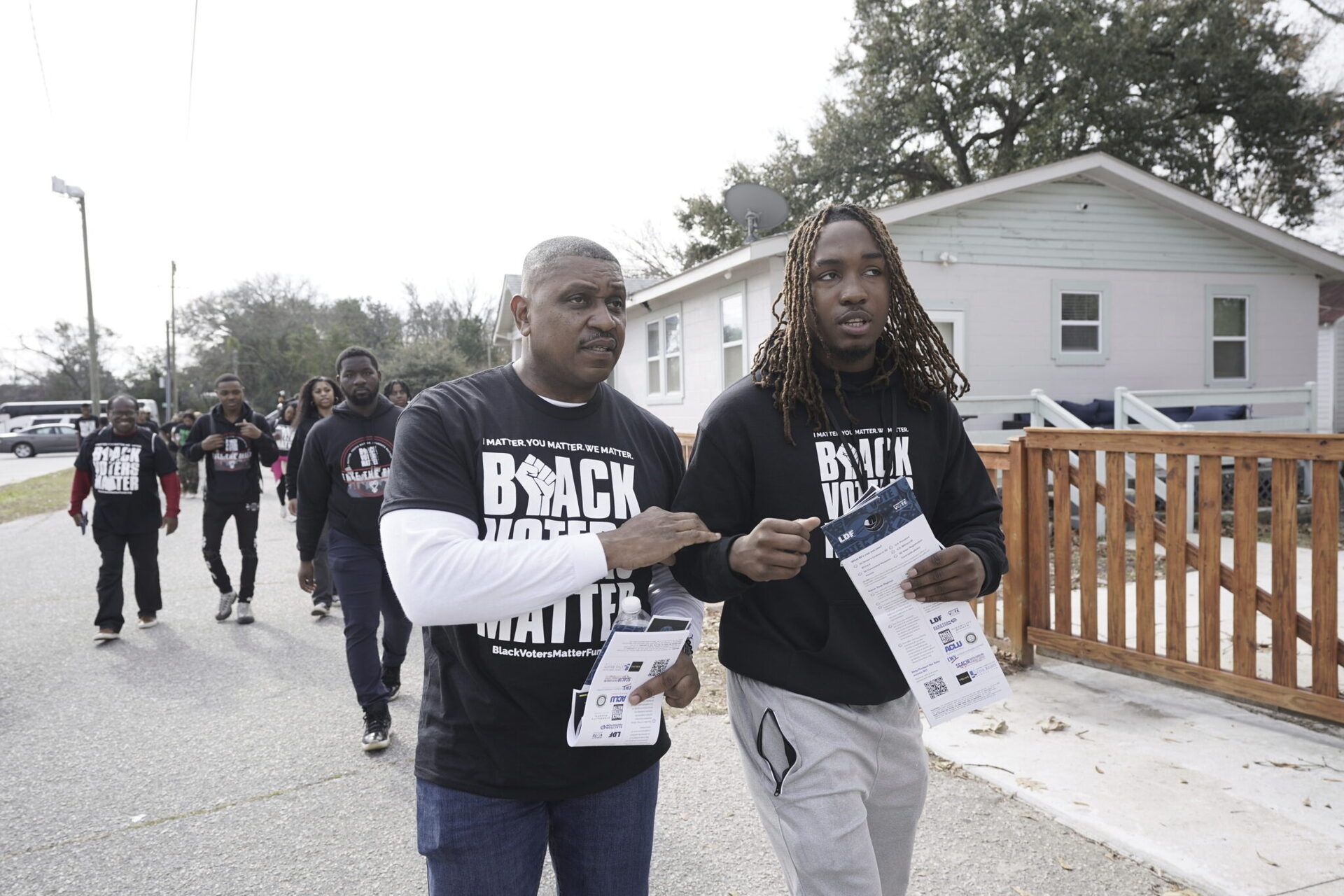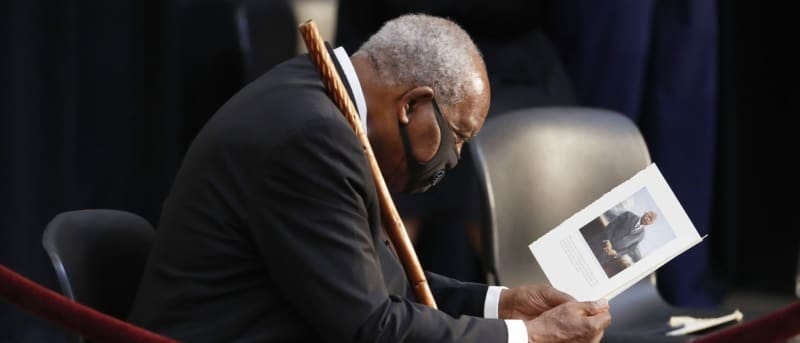- BlackVoter.Org
- Posts
- BlackVoter.Org
BlackVoter.Org

As we celebrate the 60th anniversary of the Voting Rights Act (VRA), the urgency of defending our democracy has never been clearer. Dr.
Marcus Anthony Hunter highlights the persistent struggles against voter suppression, which include felony disenfranchisement, gerrymandering, and other restrictive laws that disproportionately impact Black communities and other marginalized groups. Despite the passage of the VRA in 1965, the fight for equitable voting access continues, especially in light of the 2013 Shelby v.
Holder decision that weakened key protections. Hunter emphasizes that our democracy belongs to every citizen and calls for renewed commitment, creativity, and intergenerational collaboration to secure voting rights for all.
As we honor the legacy of those who fought for civil rights, it’s essential to acknowledge that any threat to voting rights is a threat to democracy itself. Hope and action are crucial in overcoming the ongoing challenges facing our electoral system today.


Sixty years after the landmark Voting Rights Act (VRA) was signed into law, advocates emphasize that the struggle for equitable voting rights is far from over. While the VRA aimed to eliminate discrimination and ensure that all voices are heard, recent actions—including the Supreme Court's 2013 decision to weaken its protections—have led to a resurgence of restrictive voting laws, particularly affecting Black Americans.
Activists warn that many battles previously fought and won are now being fought again. Cornell William Brooks of the NAACP highlights the alarming shift in power dynamics, indicating that achieving voting rights has become a re-litigated struggle.
Yet, amid these challenges, younger voters express a deep commitment to honoring their ancestors by actively participating in elections. As the legacy of civil rights leaders like John Lewis continues to inspire, advocates urge unity and perseverance, reminding us that while progress may be slow, it remains attainable.

In a compelling exploration of self-defense within the Black American experience, Rob Cameron challenges the sanitized narrative surrounding nonviolence that often overshadows the rightful history of armed resistance. While figures like Martin Luther King Jr.
are revered for their commitment to pacifism, the author highlights that the tradition of organized, armed self-defense has equally shaped the struggle against oppression. From early slave revolts to the formation of Black militias during the Civil Rights Movement, the demand for self-protection reflects a nuanced understanding of resistance.
Armed Black organizations, particularly during initiatives like the Black Panther Party, emerged as critical counterweights to systemic violence, underscoring an urgent need for safety in the face of rising white nationalist threats. As the landscape of protest evolves, the article argues for the recognition of self-defense as a vital component in the struggle for justice, revealing a legacy that continues to resonate today.

Join us at Monticello on November 11, 2025, for an enlightening evening with esteemed historian Dylan C. Penningroth as he unveils insights from his groundbreaking book, Before the Movement.
This talk, part of the Leonard J. Sadosky Memorial Lecture series, challenges the traditional narrative of African Americans' relationship with law and rights prior to the Civil Rights Movement.
Through meticulous research, Penningroth illustrates how Black individuals skillfully navigated the legal system long before the mid-20th century, reshaping our understanding of their fight for justice. The event kicks off at 5:30 p.
m. with seating and concessions, followed by the lecture at 6 p.
m. Don't miss your chance to engage with Penningroth and get your book signed after the program! It's a unique opportunity to explore a richer, more nuanced history of Black legal lives.

Get ready for a vibrant celebration at the 34th annual Down Home Family Reunion, hosted by the Elegba Folklore Society! Happening on Saturday, August 16, from 4 p.m.
to 11 p.m.
at Abner Clay Park in Historic Jackson Ward, this event promises an exciting exploration of African American folklife. With the theme "Bringing the World Home," attendees can immerse themselves in the rich tapestry of culture, heritage, and community.
The lineup is packed with talent, featuring performances from Rodney Stith, the Proverbs Reggae Band, and the Elegba Folklore Society, among others. Plus, there will be a dedicated area for children's activities, a market showcasing local artisans, and interactive folkloric demonstrations.

In a notable shift within Illinois politics, longtime Democratic Rep. Danny Davis is expected to announce his retirement from Congress, with sources indicating a news conference on Thursday.
The 83-year-old, who has represented Illinois' 7th district since 1996, plans to endorse Illinois State Rep. La Shawn Ford in what could be a fiercely contested race.
Known for his commitment to civil rights and economic equity, Davis has served 15 terms and is a key member of several influential caucuses. His impending departure signals a broader trend as senior Democrats, including Rep.
Jan Schakowsky, contemplate retirement amidst rising primary challenges. Davis, who won 83% of the vote in his last election, is leaving behind a strong Democratic seat, prompting interest from various candidates ranging from businesspeople to former officials.

In a bold move, over 50 Texas Democratic lawmakers staged a walkout to block a contentious redistricting map favored by Republicans and former President Trump. This "breaking quorum" tactic, while steeped in history, has had mixed results in the past.
As Texas legislators need a minimum of 100 members to conduct business, Democrats took refuge in more liberal states like Illinois, aiming to stall Republican efforts. Political experts note that while these walkouts can effectively delay legislation and draw national attention, they often fall short of completely obstructing it, as governors can continually call special sessions.
The stakes are particularly high this time, with threats of fines and even potential removal from office looming over the absentee lawmakers. Nevertheless, Texas Democrats hope this strategy will shine a spotlight on broader electoral issues and spur discussions around fair representation, potentially influencing changes beyond Texas itself.